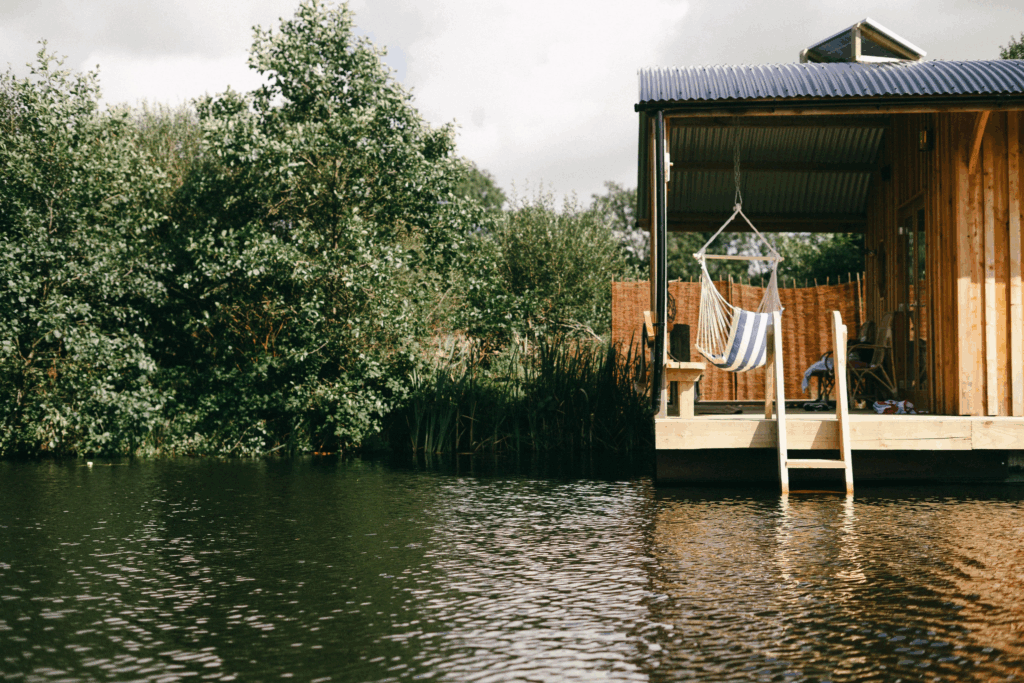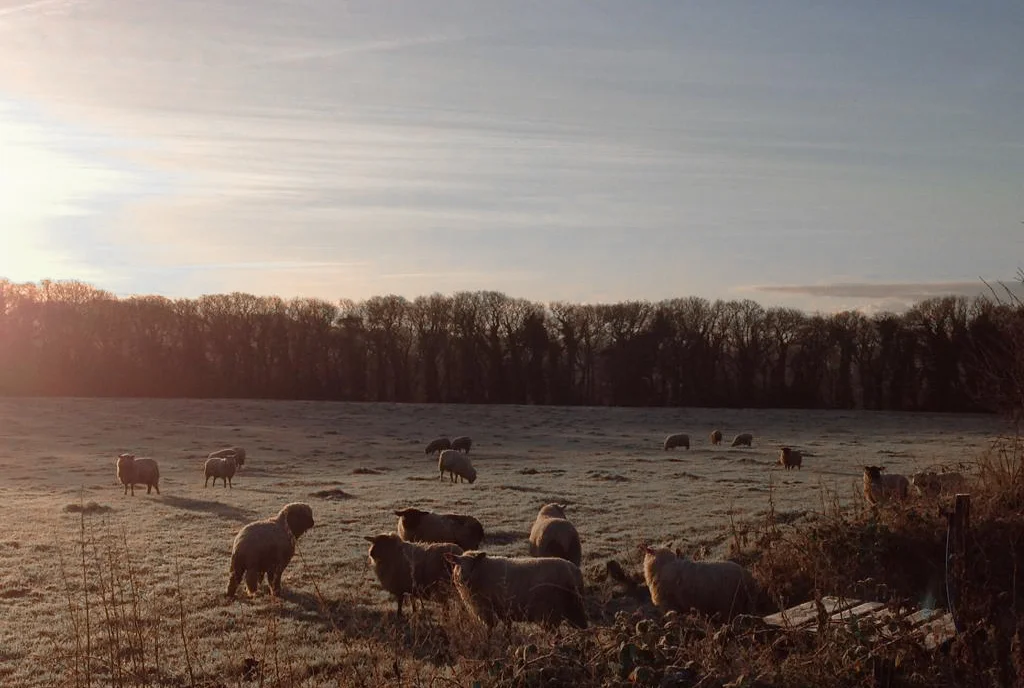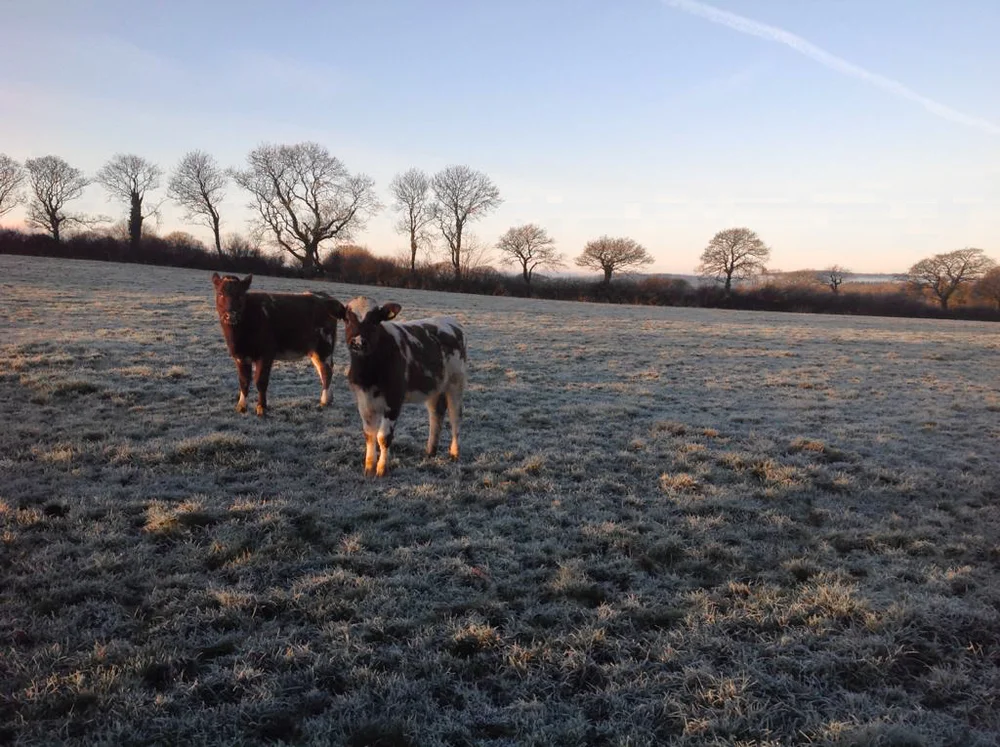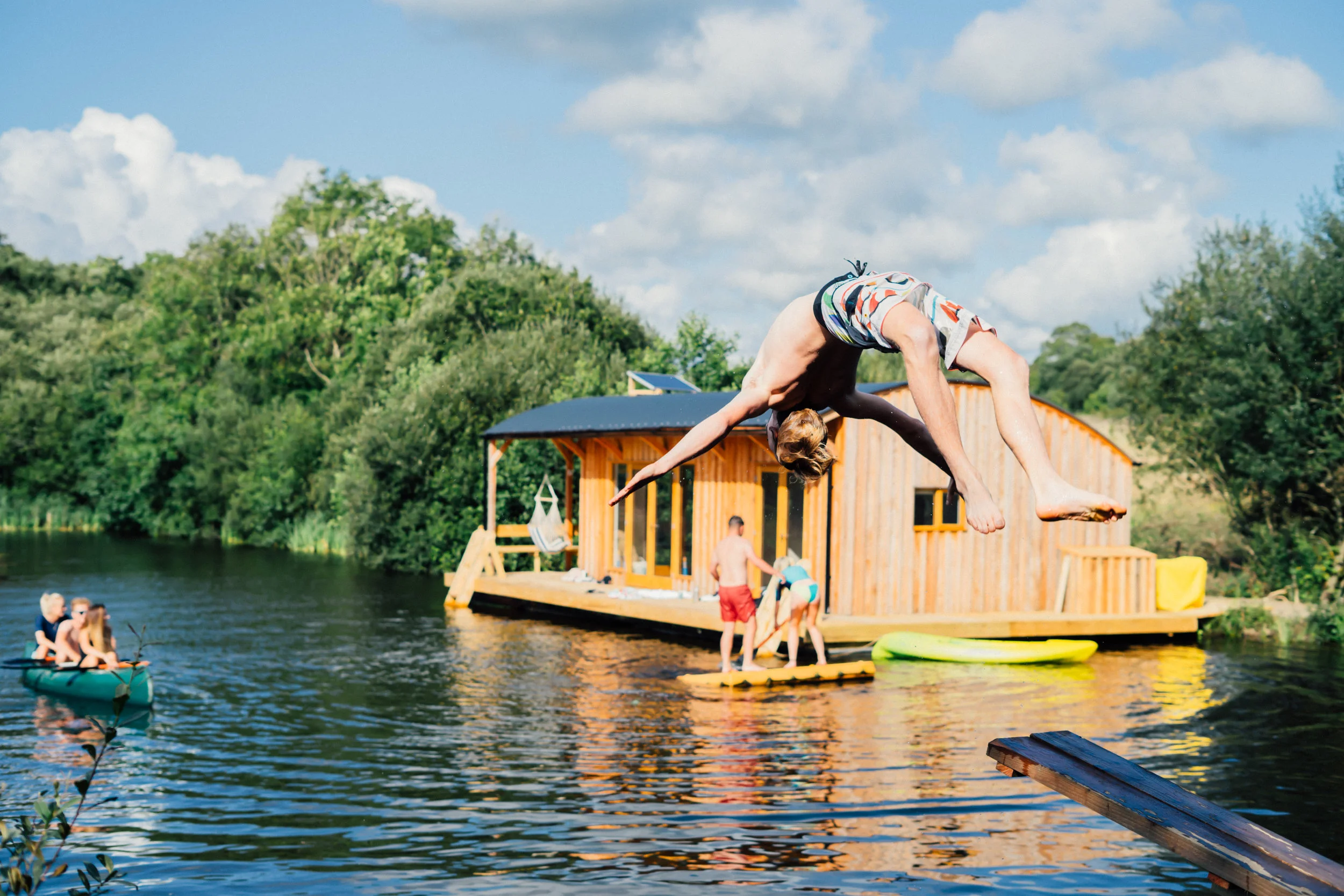Dragonfly Camping, an eco-friendly campsite and glamping retreat in Pembrokeshire, Wales, has developed gradually since its founding in 2016.
Established on a 300-acre organic dairy farm, the business began with just a single shepherd’s hut and a houseboat before expanding to include camping pitches and a Scandinavian-inspired cabin.
The site, located on the edge of the Cleddau estuary, now features 10 woodland camping pitches, each equipped with a shelter, picnic table, and fire pit.

Accommodations also include the Dragonfly Shepherd’s Hut with a king-size bed and outdoor bush bath, the Kingfisher Houseboat designed by local craftsmen, and the Woodpecker Cabin, which features a wood-fired hot tub.
Owners describe their goal as creating “a camping and glamping experience which, although green and eco-friendly, offered comfort and a little bit of luxury.”
Dragonfly Camping emphasizes a low-impact, off-grid approach. Electricity is supplied by solar panels, and facilities include eco low-flush toilets, hot showers, and communal washing-up areas.

Firewood is provided from the farm’s sustainable supply, though guests are responsible for cutting it to size. There is no Wi-Fi or electric hook-up, but limited USB charging is available in communal areas.
The business has added experiences to complement its accommodation, including bushcraft and survival courses provided in partnership with Black Rock Outdoor Company.
Guests also have access to nearby natural attractions, with Pembrokeshire’s beaches and national park within reach, and opportunities for canoeing and boating at Lawrenny estuary, a five-minute drive away.

For outdoor hospitality professionals, Dragonfly Camping provides an example of gradual scaling with a strong sustainability ethos. By starting small and steadily diversifying its offerings, the business has balanced environmental responsibility with guest demand for comfort.
The off-grid approach, combined with unique lodging such as a floating houseboat and a Scandinavian-inspired cabin, demonstrates a strategy for differentiation in a competitive glamping market.
This model may be particularly relevant for operators considering eco-driven developments or incremental expansion.
Featured image by Dragonfly Camping via dragonflycamping.co.uk


